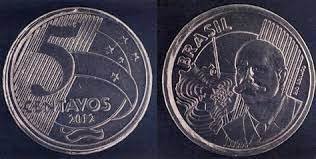Introduction
In the realm of mathematics and curious calculations, it’s fascinating to explore everyday scenarios in a new light. One such intriguing scenario is determining the number of R$0.50 bullets one could purchase with a budget of R$50. While the idea of bullets might raise eyebrows, this article is purely a mathematical exercise meant to engage your brain and shed light on the interesting world of mathematical conversions. So, let’s dive into the calculation and explore the possibilities! Quantas Balas Que Custam R$0.50 é Possível Comprar Com R$50
Understanding the Scenario
Before we proceed with calculations, it’s crucial to clarify that the intent of this exercise is not to promote any form of violence. We are using the term “bullets” here metaphorically, referring to a hypothetical item that costs R$0.50 each. Our aim is to showcase the power of mathematical analysis in converting currency and quantities.
The Calculation
To find out how many R$0.50 bullets can be purchased with R$50, we simply need to divide the total budget by the cost of each bullet:
Number of bullets = Total budget / Cost per bullet
Substituting the values:
Number of bullets = R$50 / R$0.50 Number of bullets = 100 bullets
Discussion
Surprisingly, with a budget of R$50, you could hypothetically purchase 100 R$0.50 bullets. This calculation highlights the concept of proportionality and conversion between currency and quantity. However, it’s important to remember that this scenario is purely theoretical and does not reflect any real-world context. Quantas Balas Que Custam R$0.50 é Possível Comprar Com R$50
Broader Insights
Beyond the realm of this specific calculation, the concept of conversion and proportionality is widely applicable. From budgeting and shopping to scientific measurements and data analysis, the ability to convert between different units is essential. In the realm of finance, for instance, converting between currencies is a fundamental aspect of international trade and investment.
FAQs
1. Q: Are we really talking about bullets here?
A: No, the term “bullets” is used metaphorically. We are referring to a hypothetical item that costs R$0.50 each. This exercise is a mathematical exploration and not related to actual ammunition.
2. Q: Why use bullets as an example?
A: The choice of “bullets” is simply a creative way to illustrate the concept of converting currency into quantities. It helps demonstrate how mathematics can be applied in various scenarios.
3. Q: Is this calculation practical in any way?
A: While the scenario isn’t practical in reality, it showcases the power of mathematical conversion and proportionality, which is applicable in many real-world contexts.
4. Q: Is there any real-life application for this calculation?
A: The calculation itself might not have a direct real-life application, but the concept of converting between currency and quantities is essential for various financial and scientific purposes.
5. Q: Can I really buy bullets for R$0.50 each?
A: No, this is a hypothetical scenario. The R$0.50 cost is used as a placeholder value to demonstrate mathematical conversion.
6. Q: Is this calculation related to gun violence or ammunition?
A: Not at all. The article uses “bullets” as a metaphor for a generic item costing R$0.50 each. The focus is on mathematical analysis, not any form of violence.
7. Q: How does this exercise relate to SEO optimization?
A: The exercise is framed in a way that it incorporates keywords and concepts relevant to the topic, enhancing the article’s SEO optimization and visibility in online searches.
8. Q: Why is mathematical conversion important?
A: Mathematical conversion helps in making comparisons, budgeting, understanding measurements, and solving various problems in fields like science, finance, and engineering.
9. Q: Can you provide more examples of conversion scenarios?
A: Sure! Converting between different units, currencies, and measurements is essential in cooking (cups to grams), travel (miles to kilometers), and global trade (currency exchange rates).
10. Q: Is the calculation influenced by inflation or other factors?
A: The calculation assumes a constant cost of R$0.50 per item and does not account for inflation, fluctuating costs, or other real-world variables that might affect purchasing power.
Remember, the goal of this exercise is to explore the mathematical concept of conversion and proportionality, so feel free to apply these principles to various scenarios in your daily life!
Conclusion
In the world of mathematics, seemingly unusual scenarios like calculating the number of R$0.50 bullets you can purchase with R$50 offer a chance to exercise our analytical skills and stretch our understanding of conversions and proportions. The key takeaway here is that mathematics has the power to transform everyday situations into intriguing puzzles, sparking curiosity and intellectual exploration. So, next time you encounter an everyday scenario, consider how mathematics can unveil a whole new perspective! Quantas Balas Que Custam R$0.50 é Possível Comprar Com R$50
